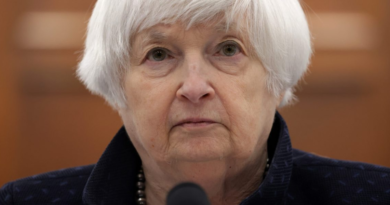Walmart’s shopper surge last quarter should boost retailer’s profits for the rest of the year
Rumors of shoppers pulling back on spending have been beaten back, with Walmart on Thursday proved that it remains a retailer in a class of its own.
The U.S.’ largest retailer beat analyst expectations, reporting quarterly earnings of $169.3 billion, a 4.8% increase compared to the year before, in its latest earnings call. Sales for the quarter were up 4.2%.
As retailers, restaurants, and other consumer business reported feeling a strained shopper base, Walmart’s remained healthy and willing to spend. The company raised its outlook for the rest of 2024 from 3% to 4%, now expecting sales to grow 3.75% to 4.75% for the year.
Overall consumer spending has slowed down in recent weeks alongside a broader economic pull back, but surged in July by the most in over a year, according to data from the Census Bureau. The report eased fears of a broad consumer pullback that could push the economy toward recession.
“So far we aren’t experiencing a weaker consumer overall,” Walmart CEO Doug McMillon said during the earnings call. “Customers from all income levels are looking for value and we have it.”
Walmart executives expected that trend to continue through the rest of the year. “I know everyone is looking for some piece of information that maybe indicates further weakness with our members our customers, we’re not seeing it,” said Walmart chief financial officer John David Rainey.
As the largest retailer in the country, with many stories in suburban areas, Walmart can be an illuminating bellwether for the health of the consumer. Even subtle changes in its shoppers can be indicative of underlying changes in consumer behavior. Sales were strong because Walmart’s lower prices had attracted customers with higher incomes, according to Rainey, who added that upper income households accounted for the “majority of gains” in sales.
Walmart appears to be one of the prime beneficiaries of recent trends showing that consumers, including higher-income ones, are bargain hunting even for daily necessities. The sheer number of product’s Walmart sells means it isn’t any ordinary retailer. It sells mostly groceries and household goods, consumer staples that aren’t likely to be among the first things cut when consumers tighten their belts, UBS retail analyst Michael Lasser told Yahoo ahead of the earnings call. “So what it has been experiencing is going to be a bit different than what other retailers have been experiencing,” he said.
In an analyst note released last week, Lasser predicted that fact would lead Walmart to raise its full year guidance, which it did. “We believe WMT’s [second quarter] results will prove their ability to outperform the broader retail industry in the face of a variety of macro and political factors,” he wrote.
That said, some consumers, especially lower-income ones, are feeling the pinch of a tightening economy, reporting lower spending and a greater pursuit of values. CEOs of several major CPG companies, like Mondelez, Kraft-Heinz, and PepsiCo, who are some of Walmart’s biggest suppliers, said on recent earnings calls that their data showed low income consumers were even more price conscious than usual. Lower income consumers were “strategizing a lot to make their budgets get to the end of the month,” PepsiCo CEO Ramon Laguarta said during an earnings call earlier this year.
To stay in line with those trends McMillon said Walmart expected to further lower prices for the remainder of the year. Executives were also wary of foisting higher prices on consumers, especially after many big corporations were accusing of price gouging lately. “We’re not intending to achieve any of our margin performance by passing this along to our customers and members in the form of higher prices,” Rainey said when discussing the company’s plans for margin expansion.
That said, executives weren’t unaware of some of the mixed signals from the economy that some experts believe could spell a worsening picture. During the call, Rainey called the economic and geopolitical picture “more uncertain that normal.” Regardless he remained confident of Walmart’s prospects. “We think that we are positioned very well, irrespective of whether we’re in a more recessionary or more more expansionary period,” Rainey said.



